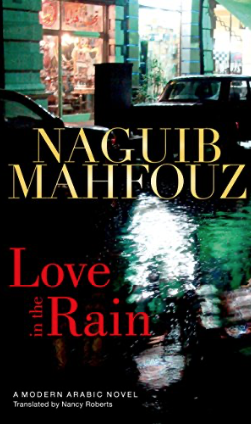The more I look into anti-Semitism’s history the more I come to the conclusion that the 1967 Six Day War was a watershed. Naturally anti-Semitism existed long before but Israel’s successful pre-emptive strike against the surrounding Arab regimes gave it the impetus to take a new form.
Israel’s devastating victory over the Arab regimes in less than a week was for them a terrible humiliation. The Arab states after all had in aggregate much larger armies, larger populations and a much larger land area than Israel. So until that point they were confident in engaging in military threats against Israel. But Israel’s stunning military success showed their numerous threats to be hollow.
Israel's victory was particularly shameful for the Arab regimes because of the prevalence of pan-Arabism at the time. That was the movement that advocated the unity of states across the Arab world. Yet one small Jewish state had defeated leading advocates of pan-Arabism including Egypt in particular. Of all the Arab states Egypt had the largest army and population while its leader, Gamal Abdul Nasser, was a leading exponent of pan-Arabism. The country also had a geographically central position in the Arab world.
If the Arab leaders had been more reflective they might have drawn the reasonable conclusion that making threats is a dangerous game. There is always the possibility that someone will call your bluff. Their humiliating defeat was at least as much to do with Arab weakness as Israel's strength.
Instead the Arab leaders concluded that, despite its relatively small size, Israel was an immensely powerful military force. The anti-imperialism of fools was born. Israel was routinely presented as a powerful player in the Middle East and often beyond. A central figure, so the argument went, in a global system of imperialism.
This added a new element to the anti-Semitic worldview as until then Jews were often seen as immensely powerful in economic and financial terms. From Israel’s 1967 onwards they were also seen as a potent military power. Not just one that stayed relatively close to its own territory but a force that had a substantial regional and even global reach. The spectre of a malign Jewish global power took on a new form.
Although this argument was born in the Arab world it soon spread further. This was partly through migration with Arab migrants, and Muslim migrants more generally, moving to the West. But it was internalised by the “third wordlist” school of leftism in the West which often romanticised movements in the poorer world.
I have written before about how The Arab Predicament by Foaud Ajami is an excellent study of the impact of the 1967 war on the Arab regimes. To fully understand the effect of the war it is necessary to understand the Arab perspective. Ajami, a Lebanese born professor at Stanford university, does an excellent job in outlining the traumatic blow to the Arab nations.
Now I have followed that up by reading Love in the Rain (first published in Arabic in 1973) by Naguib Mahfouz. Although the book is a novel, so not explicitly political, it gives a good sense of the extreme shock the war constituted on Egyptian society. Mahfouz, who won the Nobel prize for literature in 1988, is too good a novelist to make his work overtly didactic.
The novel focuses on the lives and loves of recent university graduates in Cairo from 1967-70. This is not a literary review, so I. will not focused on the characters or the main elements of the plot, except to say I found it a compelling novel.
The striking feature of the novel from a political perspective is how much the conflict with Israel still rages in the background. It should not be forgotten that the Six Day War itself lasted, as the name indicates, less than a week. Yet the conflict is still a frequent presence in the background to the novel. There are several references to soldiers fighting at the front, others being drafted and the wearing of military uniforms. There is even talk of the possibility of Jews invading Egypt and a fear of annihilation. Even some of the personal tragedies in the novel, including two killings and one person being savagely beaten, seem like they could be indirectly related to the state of war.
In fact the book’s action takes place against the backdrop of the now almost forgotten war of attrition from 1967-1970 between Israel and the surrounding states. On Egypt’s front with Israel this consisted mainly of heavy Egyptian shelling of Israeli positions on the Suez canal. The Egyptians also sank an Israeli naval destroyer killing 47.
So although it was a protracted and sometimes bloody conflict it stopped short of erupting into full-scale war. The concerns expressed in Mahfouz’s novel seem to have more to do with the trauma of losing the 1967 war than of any threat Israel posed.
In the final chapter of the novel a stranger appears who turns out to be from the Palestinian resistance. According to Edward Said, writing in his classic study on The Question of Palestine, this character shows how armed Palestinians had suddenly acquired the role of revolutionary spokesman for Arabs. In addition, he argues that revolutionary promises and rhetoric had already become parodies of themselves.
Developing a fully-rounded understand of anti-Semitism means not just looking at the world from a Jewish perspective but considering how Jews appear to others. In relation to Mahfouz there are no indications that he was an anti-Semite. However, his novel gives a strong sense of the trauma of 1967 from an Egyptian and broader Arab perspective. That is a key point to grasp in relation to understanding the anti-imperialism of fools.

